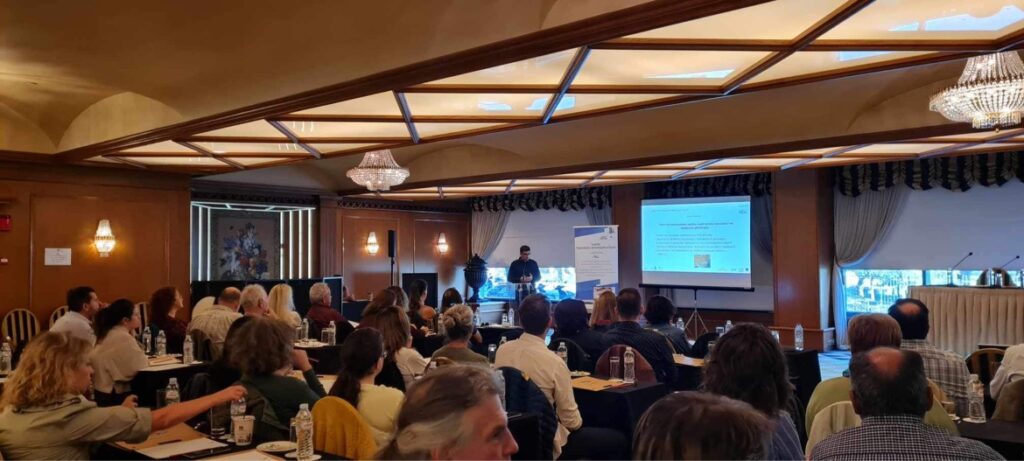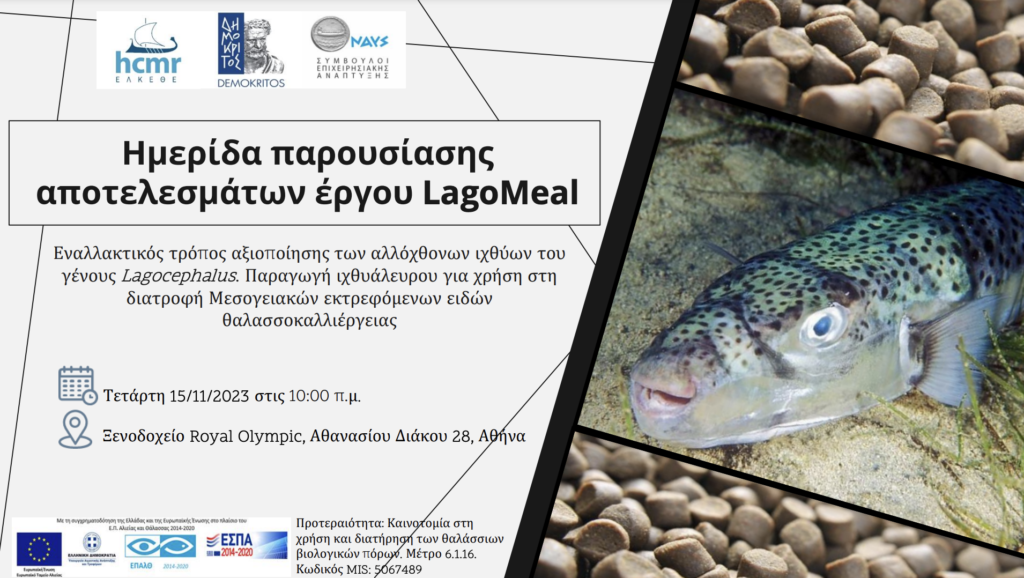The final results of the research project LagoMeal were presented on the 15th of November 2023 at the Royal Hotel in Athens. The programme was funded by local and European funds and was coordinated by the Laboratory of Applied Fish Nutrition of the Institute of Marine Biology, Biotechnology and Aquaculture (IMBBC) of HCMR in collaboration with the Institute of Marine Biological Resources and Inland Waters (IMBRIW), the National Centre For Scientific Research (Demokritos) and the private consultancy company NAYS.

The project produced new and comprehensive knowledge on the inactivation of tetrodotoxin (TTX) from fish of the genus Lagocephalus sceleratus, to utilize it for the production of fishmeal. The project aimed to turn a major environmental, social and economic issue, namely the invasion of alien aquatic species in the region of the Mediterranean Sea, into a profitable business activity for two important seafood production industries of the primary sector controlling at the same time the spread of the population of Lagocephalus.
The produced tetrodotoxin free raw material was evaluated for its nutritional value as ingredient for the nutrition, health and quality of the final product of cultured European seabass. The results from the feeding trials proved that fishmeal from Lagocephalus can be included in European Sea bass diets without compromising key performance indices.
At the end of the project an operational and business plans, describing the distribution chain (logistics) of discarded fish from the point of unloading by the fishers to the processing and production of fishmeal unit (or units) and to the aquaculture industry, were conducted to prove the viability of such a business operation.
T he IMBBC is one of the three institutes of the HCMR, with headquarters in Heraklion, Crete and facilities in Anavyssos, Attica and Souda, Crete. With a staff of 111 people and 24 regular researchers, it undertakes research in marine biodiversity, genetics and genomics, and aquaculture.
he IMBBC is one of the three institutes of the HCMR, with headquarters in Heraklion, Crete and facilities in Anavyssos, Attica and Souda, Crete. With a staff of 111 people and 24 regular researchers, it undertakes research in marine biodiversity, genetics and genomics, and aquaculture.





